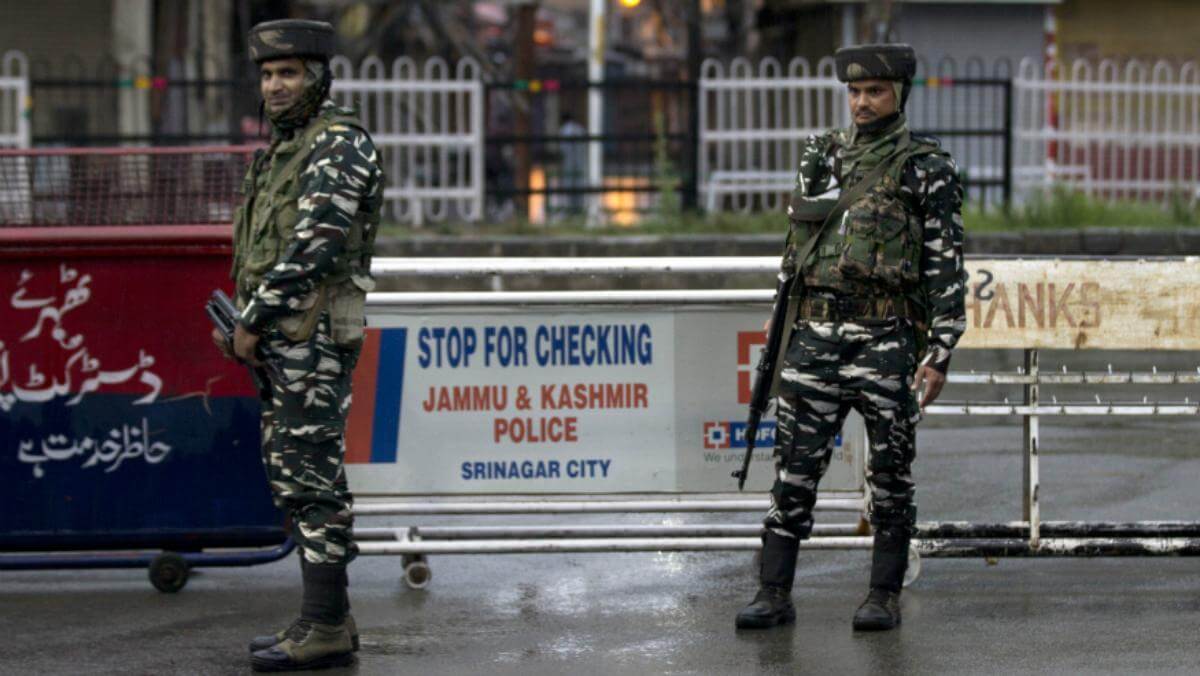The Central Government has announced new rules which defines domicile for the Union Territory (UT), Jammu and Kashmir. According to the announcement, any person who has been living in J & K for at least 15 years, and children of officials who have been working in the UT for a minimum of 10 years and migrants who will fulfil the stated conditions will be eligible for the domicile.
Amending the Jammu and Kashmir Civil Services (Decentralisation and Recruitment) Act of 2010, the gazette notification, J&K Reorganisation (Adaptation of State Laws) Order 2020, introduced the section 3A in order to offer domicile rights to any person who has lived in the UT for a minimum of 15 years.
The order states that domicile will be provided to a person “who has resided for a period of fifteen years in the UT of J&K or has studied for a period of seven years and appeared in class 10th/12th examination in an educational institution located in the UT of J&K.”
This new notification also provides domicile rights to the children of the officials who are serving in J & K.
Th order states, “Children of those central government officials, all India services officers, officials of PSUs and autonomous body of central government, public sector banks, officials of statutory bodies, officials of central universities and recognised research institutes of central government who have served in Jammu and Kashmir for a total period of ten years or children on parents who fulfil any of the conditions in sections,”.
This departs from the pre-August position where the now revoked 35A gave the assembly of Jammu and Kashmir the right to define a permanent resident who inturn would enjoy the domicile rights.
The decision was welcomed by a senior police officer who has been posted in the UT saying, “This does take care of the concerns of officials posted in the Valley since their children faced difficulty in finding jobs here even after spending all their growing up years in the state turned UT.”
Also Read: Indian Railways Provides Meals To The Underprivileged For Free And 13 IRCTC Kitchens Supplying Food
The migrants who have been registered with the Relief and Rehabilitation Commissioner (Migrants) in the UT of J & K, whose parents fulfil the new criteria will also be eligible under the new law. The notification said eligibility will be given to the “Children of such residents of J&K as reside outside UT of J&K in connection with their employment or business or other professional or vocational reasons”.
However, a senior official from the home ministry clarified that this order will only be limited to Grade 4 jobs. The section 5A of the act, which was introduced by the gazette notification said, “Subject to the provisions of this Act, no person shall be eligible for appointment to a post carrying a pay scale of not more than Level-4 (25500) unless he is a domicile of the Union territory of Jammu and Kashmir”.
This brings us down to a crucial question as to who can own a land in the UT of Jammu and Kashmir?
After August 5 when the residents of both Jammu and Kashmir expressed their concerns over people from outside the then state Jammu and Kashmir and now a UT can come in and buy land which may result in change of demographics and culture.
An official posted in the Valley said that People from J & K are keenly awaiting the decision on the land-related orders saying, “Many in the Valley are already seeing this as a blow since domicile rights will now be given to children of officers who are outsiders in their eye. If this is extended to land ownership, it might be seen as a bigger blow,”.
The amendments in the Act will give the right to the Tehsildar as the competent authority who can issue the domicile certificates as opposed to the earlier system where a Deputy Commissioner or an officer specially notified by the state government could hand them out.
Reacting to the order, the former Chief Minister of Jammu and Kashmir, Omar Abdullah tweeted, “Talk about suspect timing. At a time when all our efforts & attention should be focused on the #COVID outbreak, the government slips in a new domicile law for J&K. Insult is heaped on the injury when we see the law offers none of the protections that had been promised”.
Talk about suspect timing. At a time when all our efforts & attention should be focused on the #COVID outbreak the government slips in a new domicile law for J&K. Insult is heaped on injury when we see the law offers none of the protections that had been promised.
— Omar Abdullah (@OmarAbdullah) April 1, 2020


